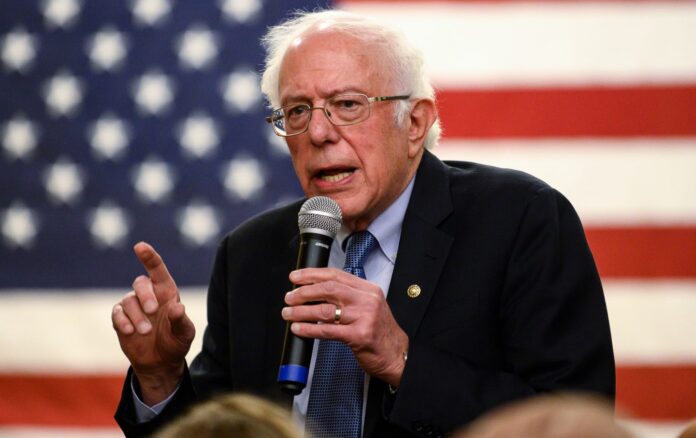In a world where the price of life has a terrifyingly high sticker value, U.S. Senator Bernie Sanders stands firm against the unchecked greed of Big Pharma, specifically its stranglehold on insulin prices. Insulin, the life-saving drug, is a vital necessity for more than 37 million Americans battling diabetes. However, for too many, the cost of this essential medication is a death sentence.
Sanders, the feisty chair of the Senate Committee on Health, Education, Labor, and Pensions (HELP), fired the opening salvo at the recent Senate hearing by recognizing the tragic loss of lives due to skyrocketing insulin prices. As a stark reminder, he also highlighted the thousands who have suffered from diabetic ketoacidosis, a severe medical condition resulting from insulin rationing.
While it costs a mere $10 to produce a vial of insulin, uninsured Americans are forced to cough up nearly $300 for the same vial. Why, you might ask? Three corporations – Eli Lilly and Company, Novo Nordisk, and Sanofi – rule the roost in America’s insulin market, hiking prices at will, all while lawmakers sit idle.
For those of you who believe this to be a simple supply-demand equation, consider this: recent studies have shown that 1.3 million Americans ration their insulin, including an alarming one in four people with Type 1 diabetes. The hardest hit? Those without insurance and individuals with private insurance.
With an impassioned plea for justice, Sanders compared the situation to a dystopian world where three companies monopolize essential resources like air and water. He exposed the unnerving reality of how these companies have steadily jacked up their insulin prices over the years.
Eli Lilly, for instance, inflated the price of Humalog by an astronomical 1,200% since 1996. Novo Nordisk and Sanofi weren’t far behind, with increases of 625% and 730%, respectively, for their insulin drugs. A problem that is sadly exclusive to the United States. In France, for comparison, the cost of Lantus, a Sanofi product, has actually decreased over the past two decades.
Underscoring the dire straits of Americans with diabetes, Sanders also noted his trip from Detroit, Michigan to Windsor, Ontario, where the same insulin product costs merely one-tenth of the U.S. price. Talk about borders defining life and death!
The hearing also served as a platform for Sanders to hold pharmacy benefit managers (PBMs), including CVS Health, Express Scripts, and OptumRX, accountable for their role in the insulin price crisis. Despite their complicity, there’s a glimmer of hope. Public pressure and legislative changes have led Eli Lilly, Novo Nordisk, and Sanofi to pledge significant price reductions for their insulin products.
However, as Sanders points out, promises are not enough. We need to ensure that these reductions become a reality so that every American can afford the insulin they need. His commitment to scrutinize these actions in an early hearing next year is a step in the right direction.
Yet, the problem doesn’t end here. The insulin price crisis is just the tip of the iceberg, as the U.S. struggles with exorbitant pricing for many other prescription drugs. Sanders highlighted the stark disparity between U.S. and international prices for cancer drugs and other medicines, pushing for a broader reevaluation of the American prescription drug market.
Sanders also took a dig at Big Pharma’s self-serving narrative of high R&D costs, pointing out that over the past decade, 14 major pharmaceutical companies spent a whopping $747 billion on stock buybacks and dividends. Add to that, the industry



